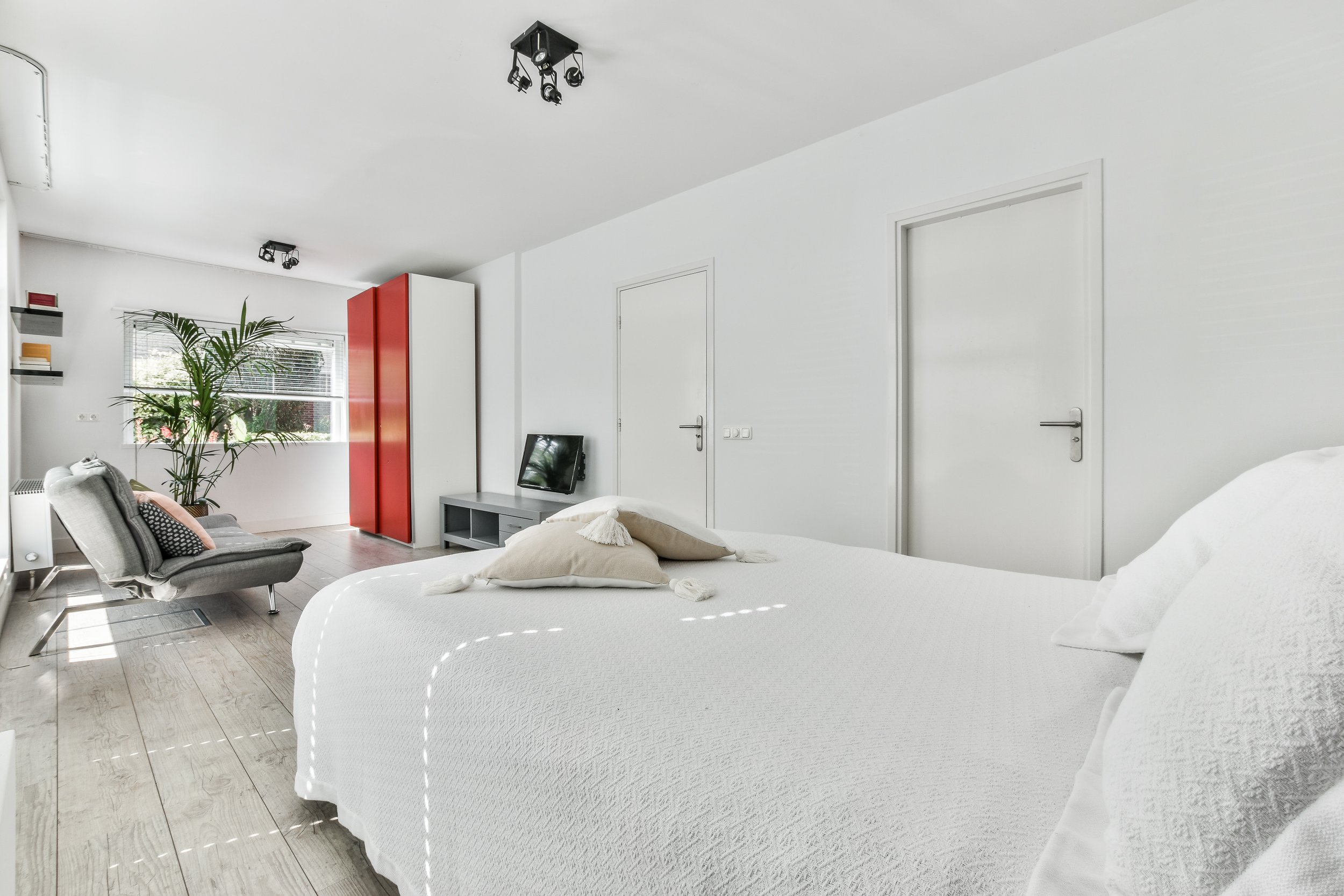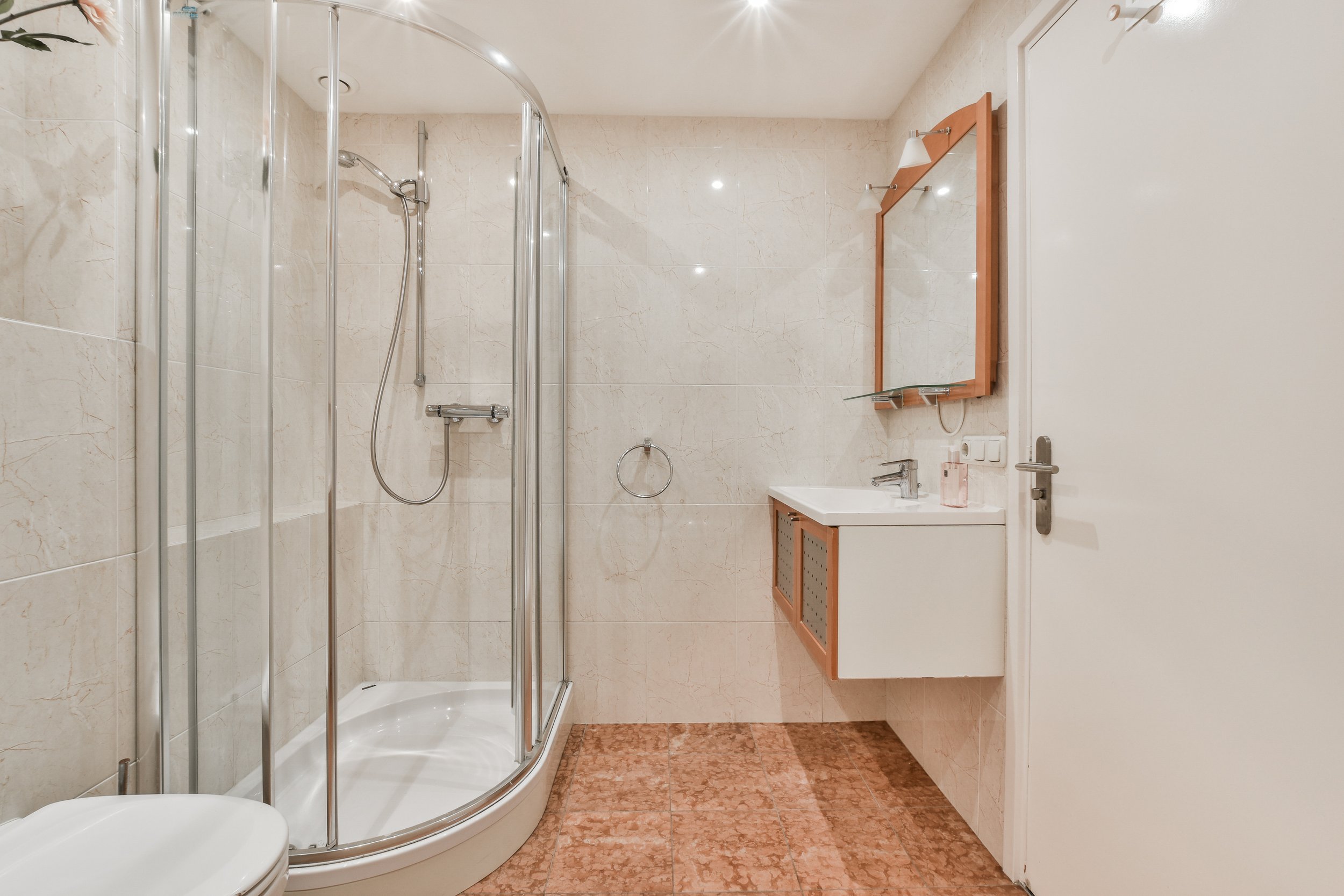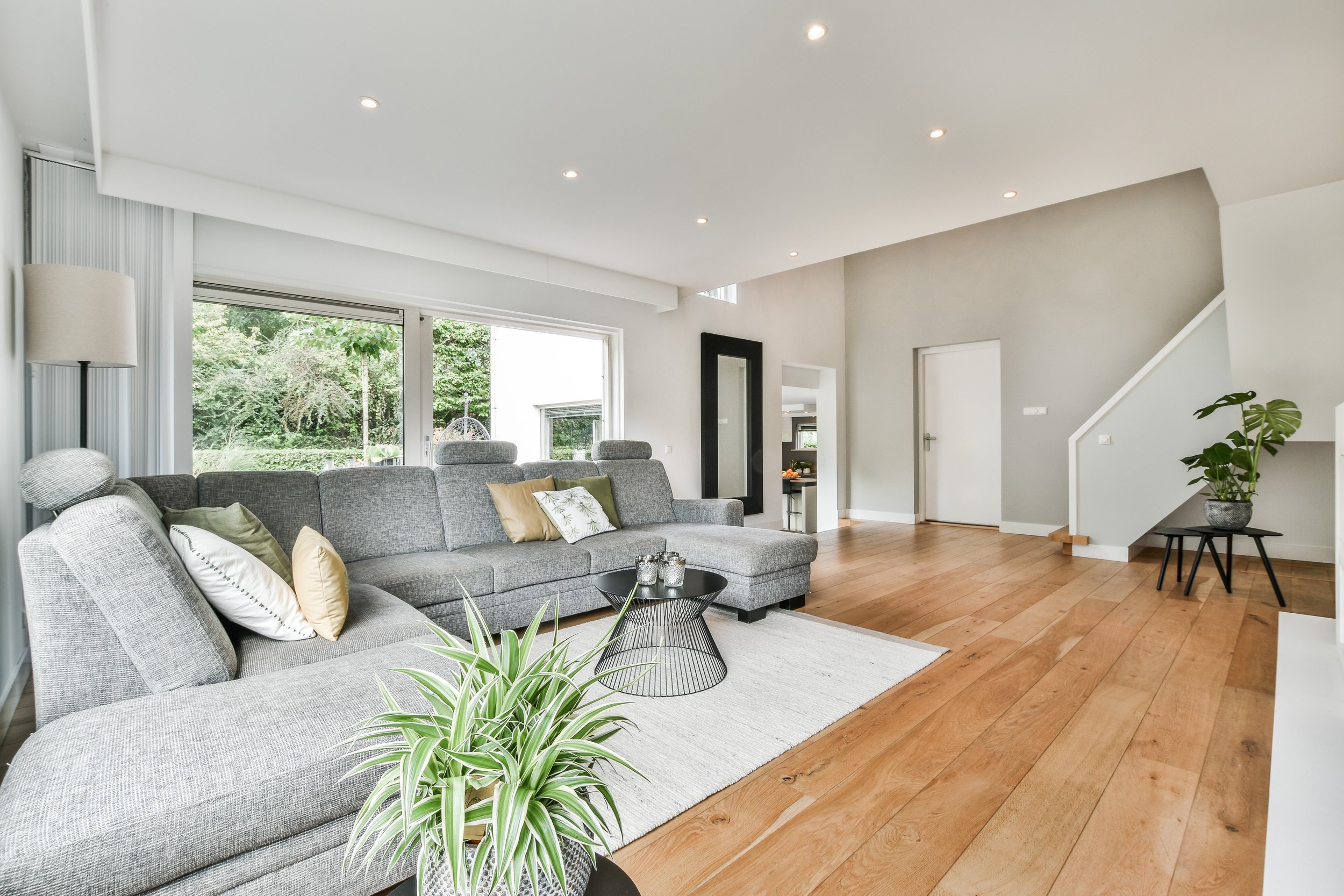
How Much Does It Cost To Hire A Contractor To Finish A Basement In Midtown Atlanta?
Finishing a basement in Midtown Atlanta gives a home more living space without changing its footprint. It can add a guest suite, a workout room, a media space, or a rental-ready in-law suite. Costs depend on square footage, design choices, and the age of the home, but a clear range helps planning. This guide explains price drivers, Midtown-specific challenges, and what a homeowner can expect when hiring a contractor for basement projects in Atlanta, GA.
Typical Cost Ranges in Midtown
Most finished basements in Midtown Atlanta fall between $45 and $120 per square foot. A basic finish with standard walls, LVP flooring, recessed lighting, and a simple media room tends to land near $45 to $70 per square foot. Add a full bathroom, a wet bar, custom built-ins, or a bedroom with an egress solution, and the range moves to $70 to $100 per square foot. High-end finishes, a full kitchen, or sound isolation for a theater can push costs to $100 to $120 per square foot, sometimes higher for historic homes or complex waterproofing.
For a 900-square-foot basement in a Midtown bungalow or townhome, a realistic planning number is $60,000 to $95,000 for a finished space with one bathroom. Add a second bath, a kitchenette, or steel upgrades for structure, and the budget can reach $110,000 to $140,000.
Why Midtown Atlanta Basements Cost What They Do
Homes in Midtown vary from 1920s Craftsman to newer infill builds. That mix affects cost in predictable ways. Older homes often need foundation repairs, subfloor leveling, or new electrical service. Many lots have tight access, which slows material handling and increases labor hours. Midtown sits on mixed soil with occasional high groundwater; drainage upgrades are common. City of Atlanta permits, inspections, and required egress standards also raise complexity compared to a cosmetic attic refresh.
A contractor for basement projects will price based on labor, materials, trade scheduling, and risk. If a house has settled and walls are out of plumb, framing takes longer. If head height is below code because of low ducts, rerouting mechanicals adds cost. If there is visible efflorescence or musty odor, moisture control becomes step one, not an add-on.
Line-Item Costs Homeowners Ask About
- Permits and plans: $1,200 to $4,500. Midtown projects usually require a building permit, mechanical, electrical, and plumbing permits, plus stamped drawings for structural changes.
- Framing and insulation: $8 to $16 per square foot of finished area. Foam board or mineral wool improves comfort over standard fiberglass in damp zones.
- Electrical and lighting: $3,000 to $9,000. Expect dedicated circuits for media, AFCI/GFCI protection, can lights, and low-voltage runs for internet and TV.
- Plumbing rough-in and fixtures for one bath: $9,000 to $18,000. Costs rise if the main drain sits higher than the slab and a sewage ejector is needed.
- HVAC: $2,500 to $8,500. This can be as simple as extending existing ducts or as involved as adding a ducted mini-split for better control and to preserve head height.
- Drywall, paint, and trim: $10 to $18 per square foot of wall area. Tall baseboards and clean reveals look right in Midtown homes but add to material and labor time.
- Flooring: $3 to $10 per square foot for LVP; $6 to $15 for engineered wood rated for below grade; $4 to $8 for carpet with moisture barrier pad; $5 to $12 for tile.
- Waterproofing and drainage: $2,500 to $18,000. Interior French drain systems, sump pumps, exterior grading correction, or crack injections are common in older basements.
- Egress solutions: $2,000 to $12,000. This includes cutting concrete for a larger window, adding a well, or widening a door to meet code.
These figures reflect recent Atlanta projects and account for Midtown’s labor and Heide Contracting: basement finishing services in Atlanta, GA. permit environment. Material choices, long-lead items, and change orders can still shift totals.
Midtown-Specific Code and Comfort Considerations
Ceiling height drives decisions. City of Atlanta code generally requires 7 feet of finished headroom in habitable spaces. Many Midtown basements sit close to that line because of beams and ductwork. A good contractor for basement finishing routes ducts tight to structure, builds soffits strategically, and avoids unnecessary drops over walk paths.

Egress is mandatory for any legal bedroom. That means a properly sized window or exterior door with a clear path. In older masonry walls, cutting a new opening needs structural steel support. The cost is worth it for safety, appraisal value, and rental compliance.
Moisture control is non-negotiable. That includes exterior grading checks, downspout extensions, sill plate sealing, vapor barriers behind walls where appropriate, and a dehumidification plan. A well-finished basement in Atlanta should sit near 45 to 55 percent relative humidity year-round. Without that, finishes age fast and odors creep in.
Sound and privacy matter in multi-level homes and townhomes. Acoustical insulation, resilient channels, and solid-core doors help separate living zones. For media rooms, a layered approach avoids rattles and keeps movie nights contained.
What Affects Price the Most
Scope choices set the budget more than anything else. A simple family room costs less than a full suite with kitchen. Moving plumbing stacks or cutting new stairs adds cost. So does high design: paneled walls, arch details, or custom millwork.
Existing conditions are the second driver. A flat, dry slab finishes quickly. A damp foundation wall requires drainage and framing adjustments. If the electrical panel is full, a subpanel will be required. If gas appliances share space, combustion air and venting clearances can drive layout changes.
Timeline affects price. Tight deadlines increase crew size, overtime, and rush shipping. Midtown parking and delivery windows also impact efficiency. Clear access and staged decisions protect the budget.
Realistic Timelines for Midtown Projects
Expect 8 to 14 weeks for a standard 700 to 1,000 square foot finish, assuming ordinary framing, one bathroom, and typical inspections. Add two to four weeks if structural steel, window cuts, or full drainage work come first. Permit review can take one to three weeks depending on the season and scope. A contractor familiar with Atlanta’s portal and inspectors keeps this predictable.
Make-Ready vs. Luxury: Two Midtown Scenarios
A 750-square-foot media room with a small office, LVP floors, a half bath, six can lights per room, painted drywall, and minimal soffits often lands near $50,000 to $65,000. It is clean, comfortable, and code-compliant.
A 1,000-square-foot guest suite with a bedroom, full bath with tiled shower, walk-behind wet bar with undercounter fridge, upgraded trim, sound attenuation in the ceiling, and a new egress window can reach $95,000 to $125,000. Add a kitchenette with vented cooking and a second bath, and the price can pass $140,000.
Both outcomes work. The right choice depends on how the home is used and the expected hold period.
How To Keep a Midtown Basement Project On Budget
- Define rooms early. Changes to walls and plumbing after rough-in lead to the most expensive revisions.
- Set finish allowances that reflect actual tastes. If the plan assumes $4 per square foot flooring but selections trend to $7, costs climb.
- Insist on a moisture plan in writing. Vague assurances lead to callbacks.
- Protect head height. Group ducts and choose low-profile lights before framing begins.
- Bundle inspections. Coordinated trades and scheduled inspections save days, which saves money.
Contractor Selection in Atlanta, GA
The right contractor for basement work brings Midtown experience, not just general remodeling skill. Ask to see recent basements within a few miles. Look for clean framing lines, straight soffits, and tidy mechanical runs. Verify active licenses and insurance. Confirm they handle permit applications and will meet inspectors on site. A good contract includes a clear scope, payment schedule tied to milestones, and allowances for finishes that match the plan.

Price is important, but fit matters. Midtown projects live close to neighbors, so respectful crews and careful debris control reduce friction. Daily sweep-downs, dust walls at stair openings, and protected main floors show professionalism.
Signs the Basement Is Ready to Finish
Before signing a contract, check for water paths after a heavy rain. Look at corners, slab cracks, and around the main water line penetration. White powdery residues on walls suggest water vapor movement. A contractor should address those conditions first. If the sump runs often, discuss battery backup and discharge routes. If the furnace sits in the basement, make sure fresh air and combustion clearances meet code once walls go up.

Financing, Value, and Appraisal Notes
Many Midtown homeowners use a home equity line or a renovation loan. Appraisers in Atlanta generally credit finished basements at a lower rate than above-grade space, but a well-executed basement still moves the number. A legal bedroom with egress and a full bath can make a listing more competitive near Piedmont Park, Ansley Park, Virginia-Highland, and Morningside. For short-term rental or in-law use, confirm zoning and any HOA rules before adding a kitchen or separate entrance.
What to Expect from Heide Contracting
Heide Contracting plans basements with clear budgets, detailed drawings, and a moisture-first mindset. The team handles Midtown’s permit process, coordinates trades, and sequences work to protect head height and acoustic comfort. Clients receive a day-by-day schedule, progress updates, and walkthroughs at rough-in and pre-paint. Most basements finish within the target window, and warranty visits are booked without fuss.
If a homeowner needs design help, Heide provides finish packages that work in classic Midtown homes without pushing costs out of range. If a space needs structural steel or an egress cut, the firm manages engineering and inspections.
Ready to Price Your Midtown Basement?
A short site visit answers the big questions: head height, moisture, plumbing routes, and power capacity. From there, Heide Contracting provides a fixed-price proposal with allowances that match actual selections. To schedule a consultation in Midtown Atlanta or nearby neighborhoods, contact Heide Contracting and ask for a basement evaluation. A well-planned basement adds space the family will use every week, and it starts with a clear, local plan and the right contractor for basement finishing.
Heide Contracting provides renovation and structural construction services in Atlanta, GA. Our team specializes in load-bearing wall removal, crawlspace conversions, and basement excavations that expand and improve living areas. We handle foundation wall repairs, masonry, porch and deck fixes, and structural upgrades with a focus on safety and design. Whether you want to open your floor plan, repair structural damage, or convert unused space, we deliver reliable solutions with clear planning and skilled work. Heide Contracting
Atlanta,
GA,
USA
Phone: (470) 469-5627 Website:
https://www.heidecontracting.com,
Basement Conversions
Instagram: @heidecontracting
Facebook: Heide Contracting